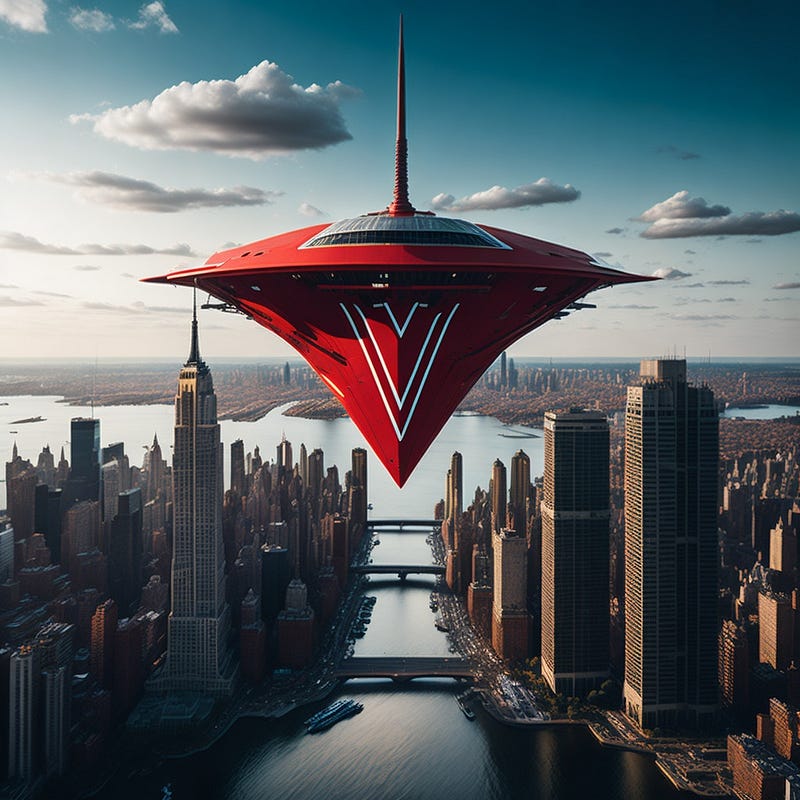What Happened to “V” — The Purpose of Science Fiction
Remember the 2009 reboot of “V”? Its failure is a reminder of what sci-fi should (and shouldn’t) be.

Alan Tudyk, Morena Baccarin, and the nostalgia for a rather brilliant 1980s miniseries. With a great cast, reasonable (for the era) special effects, and a proven pedigree, this show looked like gold on paper. So, why did it fail?
We’ll gloss over some of the factors beyond the show, like splitting the first season into two messy halves to accommodate the Olympics. This was before the modern streaming era, and studios like ABC were struggling to comprehend their audience.
No, let’s focus on a contrast between the wildly cult-popular 1980s miniseries and the modern reboot.
It comes down to this: the original V miniseries was about the pervasive lure of fascist ideologies.
It was so explicitly about this that one of the characters, who had lived through Nazi times, made a point of stating how “Never again” meant something — never again would the slide into fascism be accepted by populist appeal. Never again would genocide be allowed to take place at the whim of fascist insanity.
The 2009 remake didn’t get the message. If anything, it laid the groundwork for a thread of anti-intellectualism and anti-welfare more in-keeping with fascist ideals.
At the height of Obama’s push for some (relatively meager) improvements to the United States healthcare system, V offered tropes about aliens using healthcare to win people’s hearts and minds. Characters skeptical of the aliens were depicted as righteous in the sight of God, while those who supported them were fifth-column plants working an insidious agenda.
This wasn’t (isn’t) the only show to push mainstream agendas. It happens pretty much all the time. Most of the time, it happens by the simple virtue that the people who reach the position of power to create, vet, and promote mass-media-art themselves benefit from the status quo. Inherent bias that goes unexamined is responsible for many of the worst elements of our culture.
Science fiction has always carried an internal seed of progressivism. It almost can’t help itself. The works of science fiction to leave the greatest impact on the world all contain ideals for a society governed by mutual aid, familial (or found-family) bonds, and an ideology of curiosity. Even work focusing on dark plausible futures carries suggestions for self-betterment and social growth.
Maybe all modern science fiction really has been a conversation with Heinlein — but Heinlein’s arguments don’t make for a better world, or for winning television series. Science fiction is, ultimately, the fiction of the possible, the probable, and the hopeful — and attempts to use it for regressive and conservative ends are destined for failure.
The bad politics of V isn’t the only reason it failed. Terrible choices in direction and writing (remember the teen romance arc, wow) certainly played their role, as did mistakes from the studio. But the core problems were the series’ inability to accept the premise of the original: a warning of fascism’s populist appeal.
At a time when oligarchs and demagogues from our own species are literally doing worse than the Visitors ever did, we need the lesson of the original miniseries more than ever.
Hi there! I’m Odin Halvorson, a librarian, independent scholar, film fanatic, fiction author, and tech enthusiast. If you like my work and want to support me, please consider subscribing!
